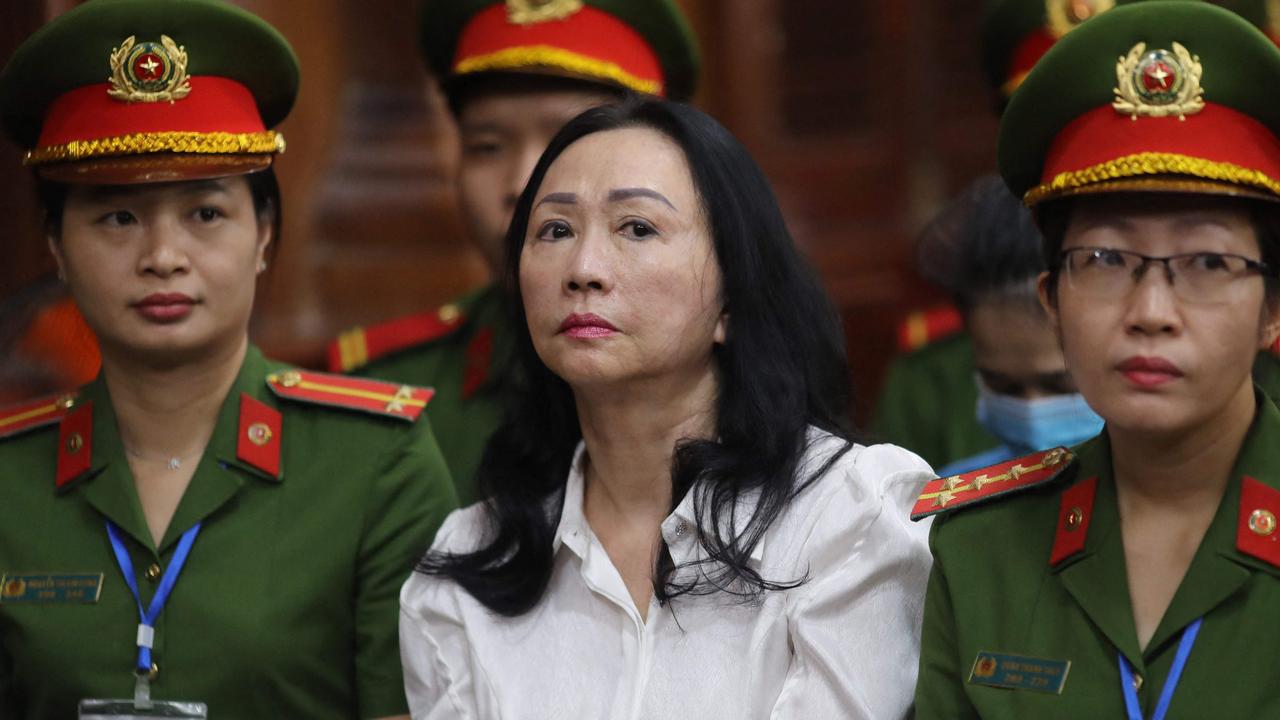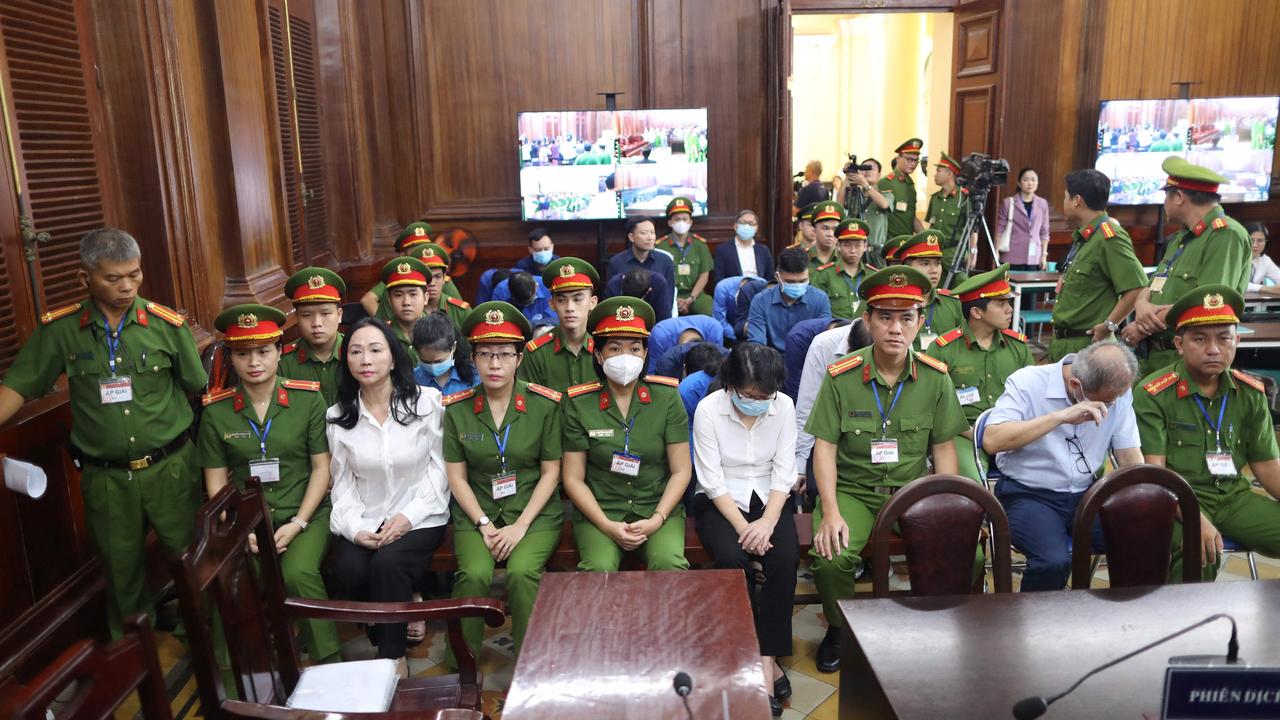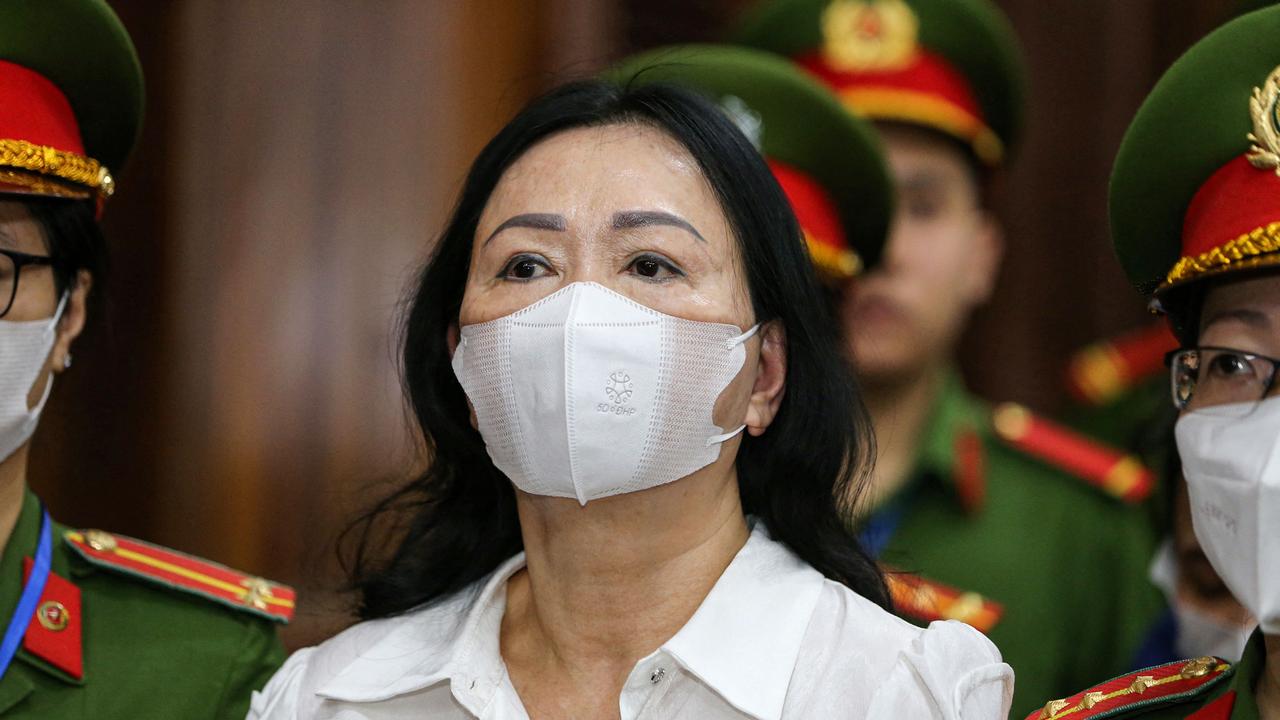Vietnamese Property Tycoon Truong My Lan sentenced to death in landmark corruption case
An elite Vietnam businesswoman, who illegally squirrelled away an unthinkable amount of cash, was sentenced to death on Thursday.

Elite Vietnamese businesswoman Truong My Lan, 67, who illegally squirrelled away a dizzying amount of cash, was sentenced to death on Thursday.
Investigations into Lan, the chair of major developer Van Thinh Phat, have since revealed a glimpse into her immense wealth.
Investigations saw over 40,000 victims identified, 1,000 properties seized and uncovered the largest-ever bribe recorded in Vietnam.
And of the A$41 billion she owes, those prosecuting her have accepted it is likely they will get little of it back. The staggering figure is equivalent to six per cent of the country’s 2023 GDP.
This ruling culminated in one of the most significant corruption cases in the nation’s history, involving an estimated $27 billion (A$41B) in damages.
A panel of three jurors and two judges meticulously sifted through the evidence, ultimately rejecting all of Lan’s defence arguments. The verdict, delivered in the bustling southern business hub of Ho Chi Minh City, underscored the severity of Lan’s actions, stating: “The defendant’s actions … eroded people’s trust in the leadership of the (Communist) Party and state.”

The trial, which spanned five weeks, resulted in the sentencing of 85 others on charges ranging from bribery to abuse of power.
Lan’s husband, Hong Kong billionaire Eric Chu Nap Kee, received a nine-year prison sentence in connection with the case.
At the heart of the matter was Lan’s embezzlement of $12.5 billion (A$18.8B) from Saigon Commercial Bank (SCB) over a decade. However, prosecutors revealed that the total damages caused by the scam ballooned to $27 billion (A$41B).
The court left no room for leniency, ordering Lan to pay nearly the entire damages sum in compensation – though the prosecution admitted it may never be recovered.

Amnesty International noted the rarity of such a harsh punishment in cases of financial misconduct, even in a nation known for its strict approach to justice.
The human rights organisation stated in its 2023 report that over 102 individuals were sentenced to death in that country in 2022.
However, the number of executions remains unclear due to secrecy surrounding figures and limited access to information.
Lan’s journey from market stall vendor to real estate magnate was marred by controversy. Born in Shantou, China, she seized opportunities amid Vietnam’s economic reforms in the late 20th century, transitioning from cosmetics sales to property acquisitions.

Her rise to prominence culminated in her pivotal role in orchestrating the merger of three struggling banks to form Saigon Commercial Bank. However, her success was overshadowed by allegations of corruption and malfeasance.
The trial shed light on the inner workings of Vietnam’s business landscape and its endemic corruption.
Lan’s arrest in 2022 sparked outrage and protests, with thousands of victims clamouring for justice. Among them was Nga, a Hanoi resident who lamented Lan’s death sentence, expressing a desire for her to witness the suffering she had caused.
The scale of the scandal was staggering, with over 42,000 victims identified, including bondholders unable to access their investments.
Lan’s intricate web of deceit involved fraudulent loan applications and illicit dealings with state officials to conceal SCB’s financial woes.

Prosecutors painted a damning picture of Lan’s illicit empire, revealing the seizure of over 1,000 properties and the largest-ever bribe recorded in Vietnam, totalling $5.2 million (A$8M).
The far-reaching implications of her actions reverberated throughout the nation, implicating high-ranking officials and banking executives alike.
Vietnam’s anti-corruption crackdown, spearheaded by Communist Party Secretary-General Nguyen Phu Trong, showed signs the government’s commitment to upholding accountability and transparency.
However, the fallout from Lan’s downfall served as a stark reminder of the challenges that may lay ahead in rooting out systemic corruption.
As Vietnam grapples with the aftermath of this landmark case, questions linger about the effectiveness of its anti-corruption measures and the resilience of its institutions.



